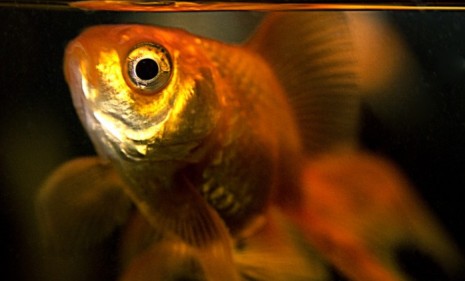The world's most heroic animals
God's creatures do some of the world’s dirtiest work, from rounding up terrorists to sniffing out bed bugs

A free daily email with the biggest news stories of the day – and the best features from TheWeek.com
You are now subscribed
Your newsletter sign-up was successful
Everyone knows that sniffer dogs provide a valuable service to police officers, drug enforcement agencies, and customs officials. But it's not just canines being pressed into service as human helpers — there's a veritable menagerie of heroic animals out there performing indispensable services both overseas and at home:
1. Mine-clearing rats
Just this week, it was reported that a team of giant African pack rats has been helping U.N. staff in western Africa sniff out landmines for some years. The rodents are trained to identify TNT, and have already been deployed in Mozambique and Tanzania. Two humans working with the help of two trained rats can sweep a 2,150 sq. ft. field in two hours.
The Week
Escape your echo chamber. Get the facts behind the news, plus analysis from multiple perspectives.

Sign up for The Week's Free Newsletters
From our morning news briefing to a weekly Good News Newsletter, get the best of The Week delivered directly to your inbox.
From our morning news briefing to a weekly Good News Newsletter, get the best of The Week delivered directly to your inbox.
2. Goldfish that monitor water quality
The legions of security staff set to protect world leaders from danger at this week's G-20 summit in Seoul, South Korea, will be assisted by six goldfish. Organizers will use the small fish to check the purity of the water supply to restrooms. "The fish... symbolize an eco-friendly water policy," said a manager of the convention center hosting the summit.
3. Bedbug-fixated beagles
When it comes to identifying a bedbug infestation, humans are hopelessly inefficient compared to dogs who've been specially trained to smell out the parasites with a 96-percent accuracy rate, according to entomology researchers at the University of Florida. While beagles seem to have a particular talent for this trade, other hunting-breeds (Jack Russell terriers) and even designer dogs (puggles) are carving out a niche for themselves.
A free daily email with the biggest news stories of the day – and the best features from TheWeek.com
4. Bees that monitor air quality
Several German airports use honeybees to detect the level of pollutants in the air. Here's how it works: 200,000 bees were bred in hives at Dusseldorf International Airport. Researchers compare the honey they produce with that of countryside-dwelling bees, noting the relative presence of pollutants. Bees have also been used as "biodetectives" to gauge water quality in rivers and reservoirs.
5. Navy sea-lions and seals
The U.S. Navy has enlisted a number of trained marine creatures to help it patrol the oceans. Its slippery troops include a team of sea lions who can identify limpet mines and seals who can affix leg cuffs to the ankles of "underseas interlopers." Remarked the San Francisco Weekly's Joe Eskenazi of a recent demonstration of the seals' criminal-nabbing skills: "Human police then reeled the frogman in while menacingly pointing an assault rifle at his head.... [it was] kind of like a Sea World show, but with guns."
6. Dolphin assassins
The Navy has also meticulously trained a number of dolphins to do everything from photographing military installations to immobilizing wetsuit-clad terrorists under a program called the Cetacean Intelligence Mission. In the aftermath of Hurricane Katrina, there were rumors that armed dolphins trained to shoot and kill human targets with toxic dart guns had escaped into the Gulf of Mexico.
7. Bomb-smelling worms
One of the smallest creatures on this list, the millimeter-long Caenorhabditis elegans worm has an incredible sense of smell, and can detect nitroglyceride and cyclohexanone more capably than even a sniffer dog. Doctors in Australia hope to extract the tiny scent organs from the worm and reproduce them in an electronic testing device.
8. Flu-sniffing mice
American government researchers have trained mice to detect the smell of avian influenza — a.k.a. bird flu — in duck droppings. Scientists are unsure whether the mice are actually smelling the virus itself, or some kind of effluence from the ducks' immune response. Either way, mice may eventually play a key role in the detection of disease.
-
 Crisis in Cuba: a ‘golden opportunity’ for Washington?
Crisis in Cuba: a ‘golden opportunity’ for Washington?Talking Point The Trump administration is applying the pressure, and with Latin America swinging to the right, Havana is becoming more ‘politically isolated’
-
 5 thoroughly redacted cartoons about Pam Bondi protecting predators
5 thoroughly redacted cartoons about Pam Bondi protecting predatorsCartoons Artists take on the real victim, types of protection, and more
-
 Palestine Action and the trouble with defining terrorism
Palestine Action and the trouble with defining terrorismIn the Spotlight The issues with proscribing the group ‘became apparent as soon as the police began putting it into practice’